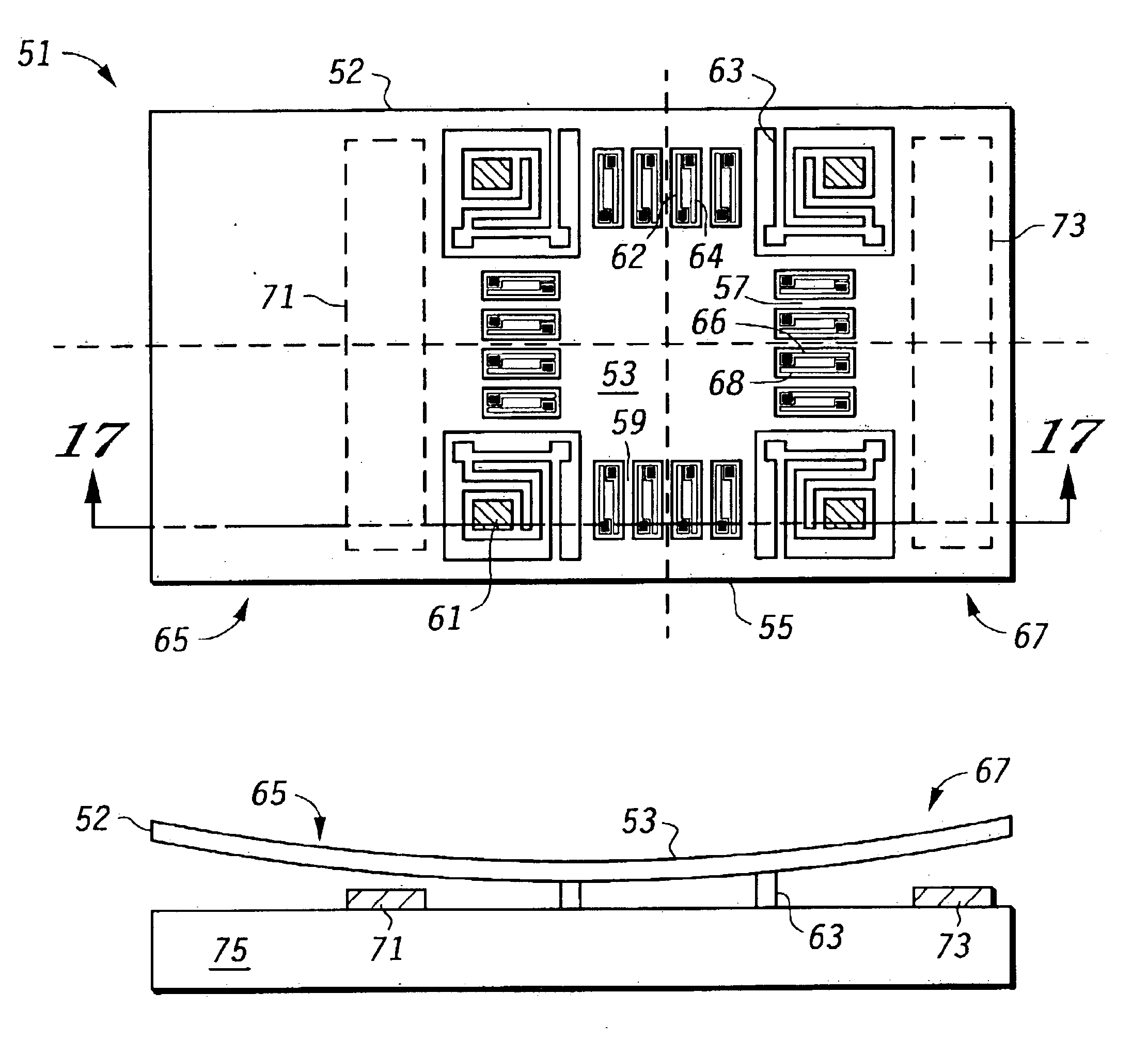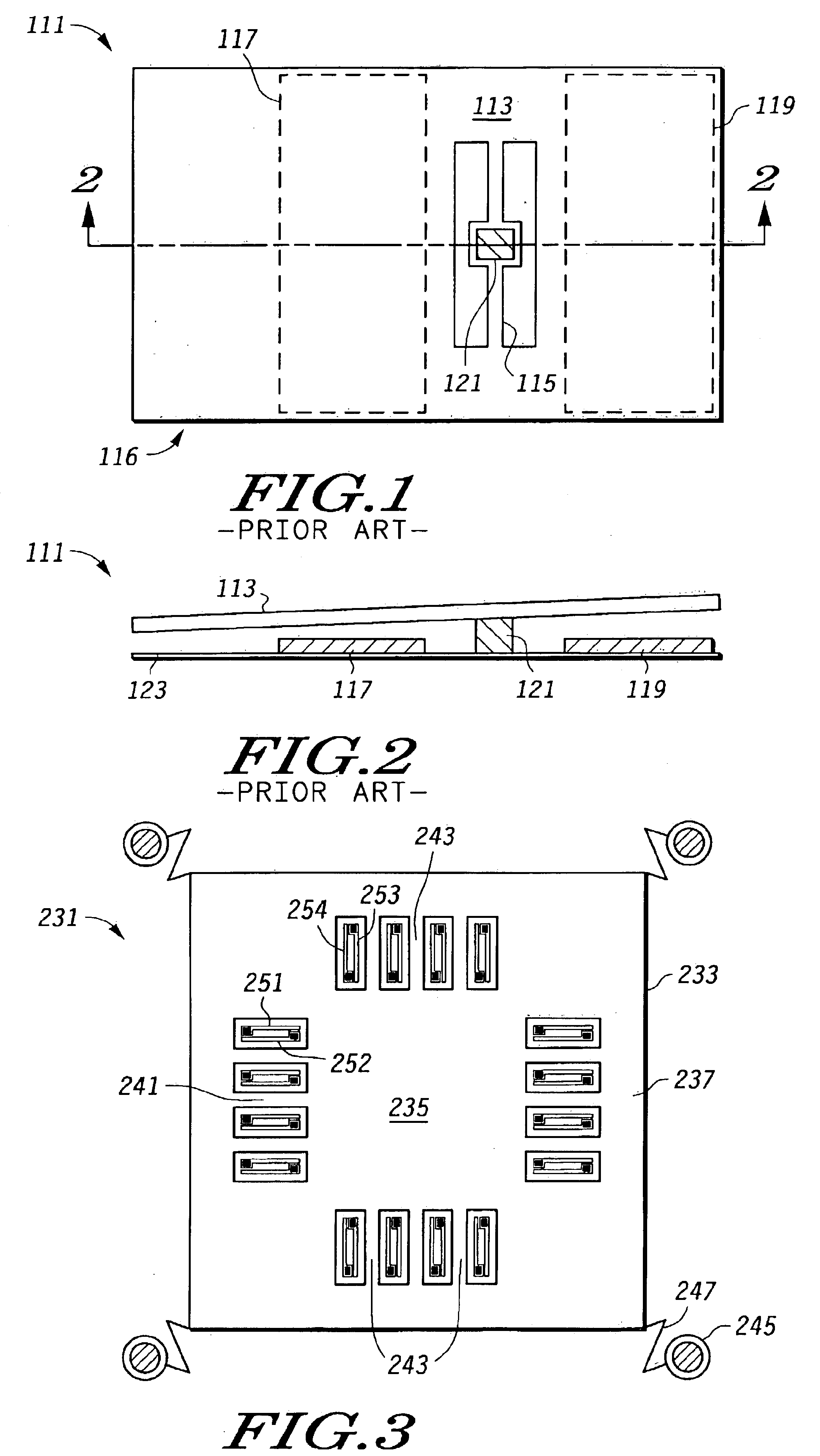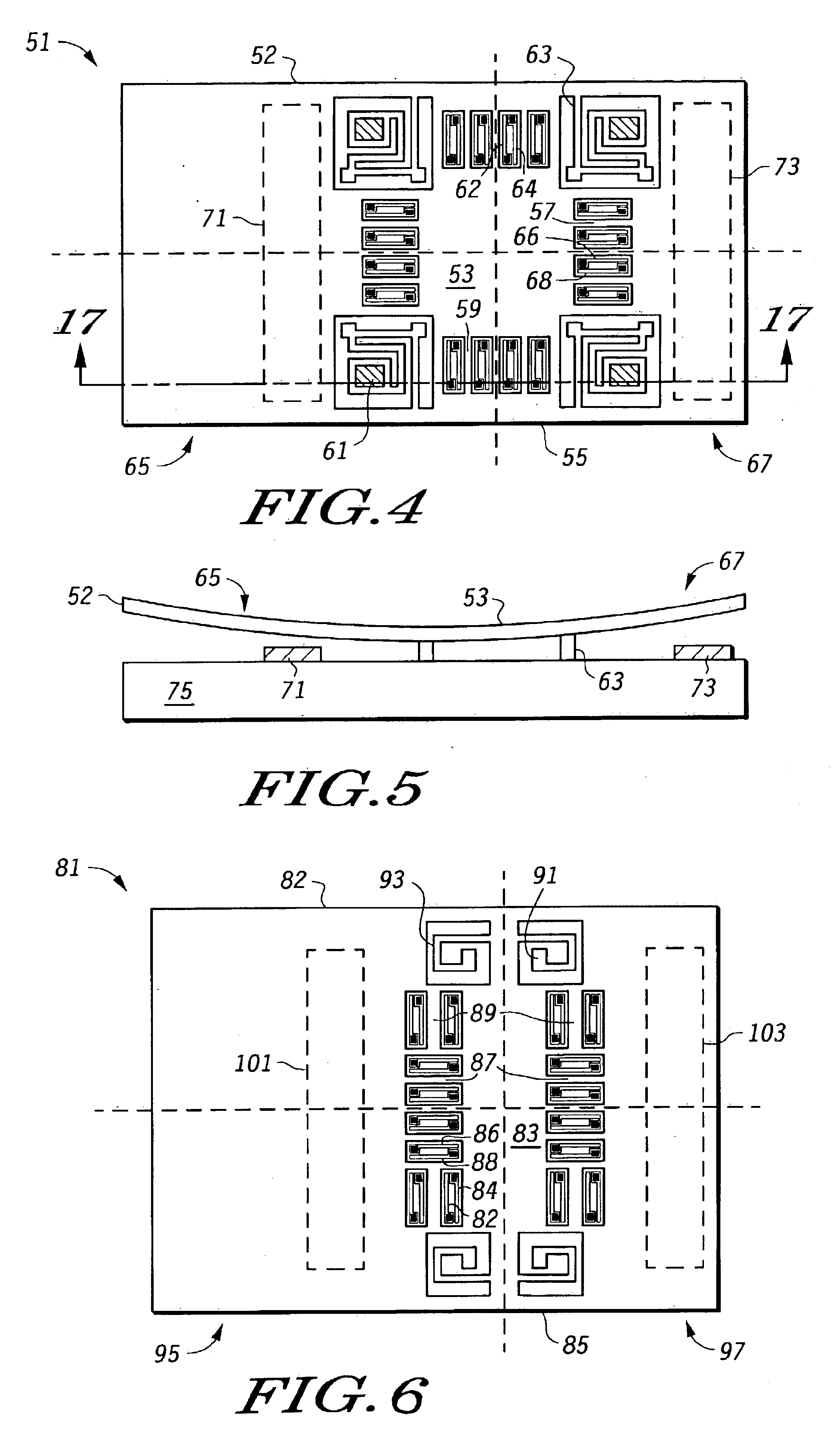Single proof mass, 3 axis MEMS transducer
a transducer and proof mass technology, applied in the field of microelectromechanical sensors, can solve the problems of inability to form a single planar device, insufficient weight of the final package resulting from such a configuration, and inability to use an unbalanced proof mass in this devi
- Summary
- Abstract
- Description
- Claims
- Application Information
AI Technical Summary
Benefits of technology
Problems solved by technology
Method used
Image
Examples
Embodiment Construction
The terms “two layer” and “three layer”, when used herein in reference to an accelerometer or transducer or to a process flow for making the same, refer to the number of layers of conductive material (typically doped polysilicon) used to fabricate the sense capacitor plates present in the device or required by the manufacturing process.
In accordance with the teachings herein, a compact, single die transducer, which may be, for example, an accelerometer or other sensing device, is provided which may be fabricated in a two layer process flow. Embodiments made from a two layer process flow may be easier and less expensive to implement than a typical three layer process flow. Moreover, the resulting transducer has no contribution to package stress sensitivity from the third conductive layer. The transducer can be made to sense along two or more mutually orthogonal axes.
FIGS. 4-5 depict one embodiment of a transducer 51 made in accordance with the teachings herein. The device comprises a...
PUM
 Login to View More
Login to View More Abstract
Description
Claims
Application Information
 Login to View More
Login to View More - R&D
- Intellectual Property
- Life Sciences
- Materials
- Tech Scout
- Unparalleled Data Quality
- Higher Quality Content
- 60% Fewer Hallucinations
Browse by: Latest US Patents, China's latest patents, Technical Efficacy Thesaurus, Application Domain, Technology Topic, Popular Technical Reports.
© 2025 PatSnap. All rights reserved.Legal|Privacy policy|Modern Slavery Act Transparency Statement|Sitemap|About US| Contact US: help@patsnap.com



